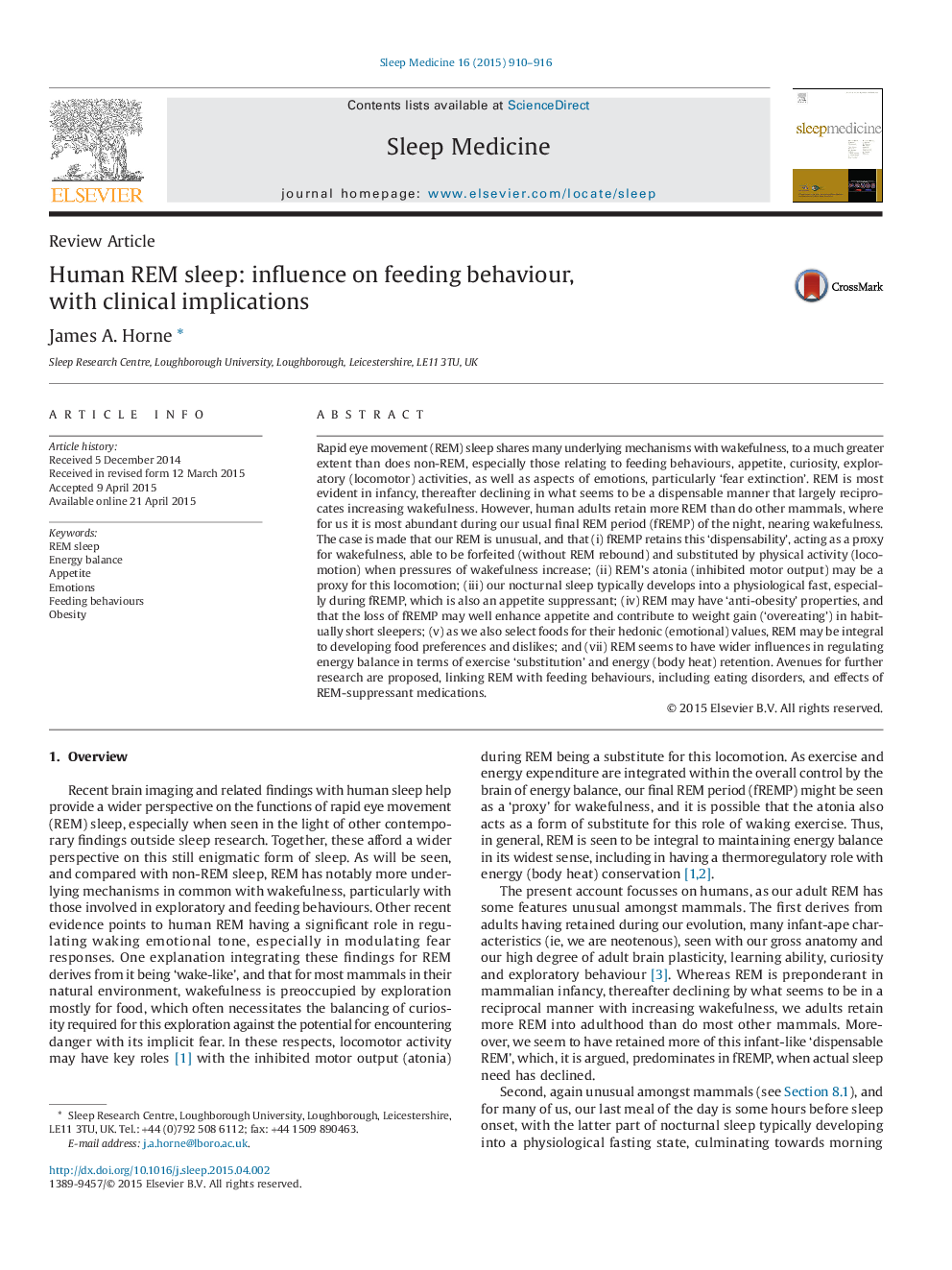| کد مقاله | کد نشریه | سال انتشار | مقاله انگلیسی | نسخه تمام متن |
|---|---|---|---|---|
| 3175850 | 1200232 | 2015 | 7 صفحه PDF | دانلود رایگان |

• Rapid eye movement (REM) shares many mechanisms with wakefulness, feeding and exploratory behaviours.
• Our final REM period (fREMP) is forfeitable and substituted by locomotion.
• fREMP is a fasting state with appetite suppression and ‘anti-obesity’ properties.
• REM has wider physiological effects with energy balance and heat conservation.
• REM may be involved with eating disorders and weight gains with antidepressants.
Rapid eye movement (REM) sleep shares many underlying mechanisms with wakefulness, to a much greater extent than does non-REM, especially those relating to feeding behaviours, appetite, curiosity, exploratory (locomotor) activities, as well as aspects of emotions, particularly ‘fear extinction’. REM is most evident in infancy, thereafter declining in what seems to be a dispensable manner that largely reciprocates increasing wakefulness. However, human adults retain more REM than do other mammals, where for us it is most abundant during our usual final REM period (fREMP) of the night, nearing wakefulness. The case is made that our REM is unusual, and that (i) fREMP retains this ‘dispensability’, acting as a proxy for wakefulness, able to be forfeited (without REM rebound) and substituted by physical activity (locomotion) when pressures of wakefulness increase; (ii) REM's atonia (inhibited motor output) may be a proxy for this locomotion; (iii) our nocturnal sleep typically develops into a physiological fast, especially during fREMP, which is also an appetite suppressant; (iv) REM may have ‘anti-obesity’ properties, and that the loss of fREMP may well enhance appetite and contribute to weight gain (‘overeating’) in habitually short sleepers; (v) as we also select foods for their hedonic (emotional) values, REM may be integral to developing food preferences and dislikes; and (vii) REM seems to have wider influences in regulating energy balance in terms of exercise ‘substitution’ and energy (body heat) retention. Avenues for further research are proposed, linking REM with feeding behaviours, including eating disorders, and effects of REM-suppressant medications.
Journal: Sleep Medicine - Volume 16, Issue 8, August 2015, Pages 910–916